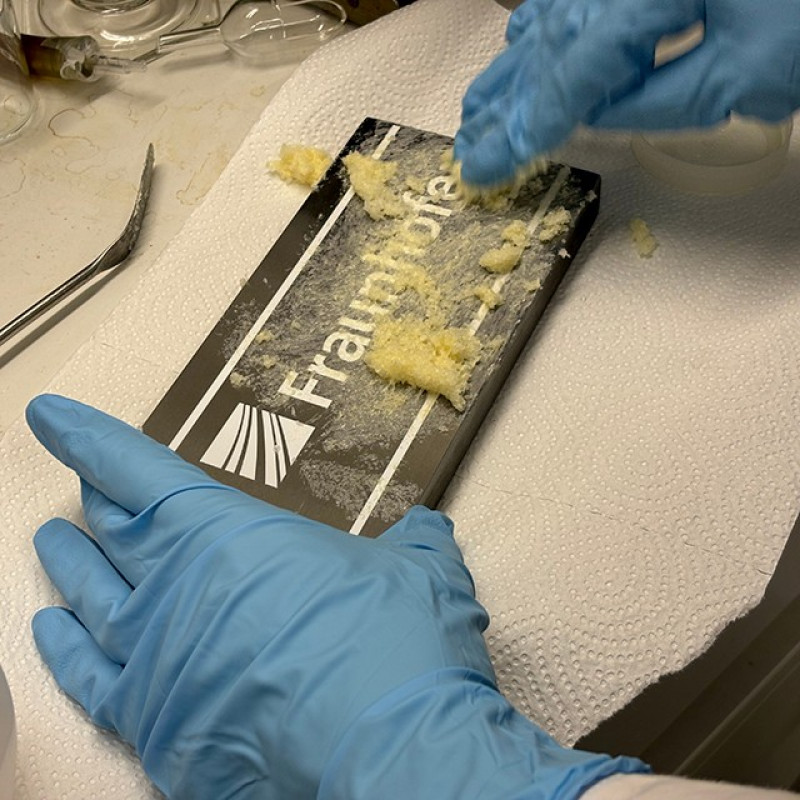
Corrosion is a common process that significantly affects the lifespan of materials, especially metals. This process impairs the stability and properties of metal products and poses a major challenge in various industries. Although there are numerous methods to slow down corrosion, thorough testing of components remains essential to assess product lifespan and reliability in advance under real-life conditions. Researchers at the Fraunhofer Institute for Structural Durability and System Reliability LBF have created a new salt paste that can be customised for a range of test scenarios and delivers comparable results to the traditional salt spray test, which has a number of drawbacks.
Environmental simulation as the key to durability
Targeted corrosion tests under mechanical stress provide insights into the lifespan of components. Analysing the results helps to improve the durability of products. Salt spray tests, conducted in controlled environments, simulate the effects of salty air on materials. These tests are particularly crucial in the automotive and aerospace industries to evaluate corrosion resistance. The products are placed in a chamber in which a saline solution is sprayed as a mist to create accelerated corrosion conditions. The results of these tests under real-life conditions are crucial for predicting product lifespan and reliability. However, these tests require large quantities of saline solution and lead to the complete corrosion of the entire component and the test stand. In addition, factors such as pH, temperature and concentration play an important role.
New salt paste: individually adaptable and sustainable
Researchers at the Fraunhofer LBF have created a new salt paste. By customising the composition, the salt paste can be precisely adjusted to different parameters of the application and test scenarios. In addition, comparable results can be achieved to those of a traditional salt spray test. The new salt paste is well suited for rapid screening in material selection and development. This enables an efficient and targeted evaluation of new materials and their corrosion resistance. In addition to classic salt corrosion, acidic or alkaline conditions can also be simulated.
The salt paste consists of proven ingredients such as a superabsorber, wool wax, fatty alcohols and salts. By using established raw materials and natural ingredients such as wool wax, as well as the significantly smaller amount of material required, the salt paste reduces the consumption of resources and energy, thus minimising the environmentally relevant effects of corrosion tests.
Designing sustainable corrosion testing – development partners benefit
The Fraunhofer scientists are looking for partners in industry who see fields of application for salt pastes in their company and want to further develop the possibilities of the newly developed salt paste. It can be used in corrosion tests on plastics and metals, for example in maritime technology, under desert climate conditions, on PV systems or on coatings on wood in outdoor areas, and much more.

